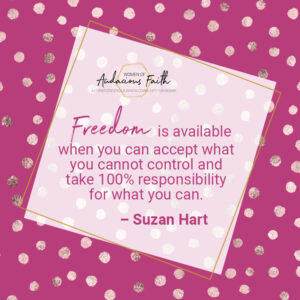“When we are no longer able to change a situation, we are challenged to change ourselves.” -Viktor E. Frankl
 It is said that freedom is available when you can accept what you cannot control and take 100% Responsibility for what you can. To surrender to life circumstances, yet still, take the actions that allow you to achieve the goals and outcomes you desire. To accept, surrender and respond often required a new level of personal mastery.
It is said that freedom is available when you can accept what you cannot control and take 100% Responsibility for what you can. To surrender to life circumstances, yet still, take the actions that allow you to achieve the goals and outcomes you desire. To accept, surrender and respond often required a new level of personal mastery.
So, what is Mastery?
Mastery is the conditioning of your mind through insight and self-knowledge. To acquire mastery is to understand how your habits, thinking, emotions, and communication impact your lifestyle, your success, and your sense of freedom.
Let’s explore the key areas of mastery:
Mindset: Our mindset is simply our thinking. It is created by how we filter and process information. Think of a filter as the lens to which you view the world. To have mindset mastery is to have an awareness of how different influences impact your habits, communication, emotions, as well as your physical and emotional health. Think of the last time you experienced a situation that did not go the way you anticipated. Did you see the outcome as a failure, or did you see it as an opportunity to learn and grow? Whatever story you chose to tell yourself about the event will give you an indicator of your mindset. Mindset Mastery is when you condition your mind to view every situation as an opportunity God has placed in your path to strengthen you and allow you to become the person that can achieve your goal and achieve your miracle.
Communication: This is your communication with yourself and with others. This is all your self-talk both positive and negative. Communication mastery is to be conscious of the words we speak and how they impact the outcomes we create in the world. What do you say to yourself when frustrated or you make a mistake? What story did you create? Is it positive or negative? Consider that your self-talk will impact your communication with others and your power to create results.
Emotions: This mastery forms what we often call our attitude. To have emotional mastery is truly to manage your energy in the face of life’s ups and downs. Your mindset and communication will always feed your emotions and impact your attitude. Go back to the situation that did not go the way you anticipated. Chances are the story you chose to tell yourself determines your attitude and ultimately your actions. To have mastery is to experience your emotions yet not allow your emotions to influence your communication and determine your behaviors.
“Attitude is a little thing that makes a big difference.” — Winston Churchill
 Habits: These are the behaviors you do without thinking. I like to call them your automatic ways of being. Our habits can also be our coping mechanisms, the things we unconsciously do when stressed. Think of the last time you were stressed, frustrated or angry, how did you react? Were you able to keep moving towards your goals or were you instantly derailed? Mastery is to have an awareness of your automatic way of being and to awareness to create habits, rituals, and routines that are designed to keep you moving forward in the most challenging of situations.
Habits: These are the behaviors you do without thinking. I like to call them your automatic ways of being. Our habits can also be our coping mechanisms, the things we unconsciously do when stressed. Think of the last time you were stressed, frustrated or angry, how did you react? Were you able to keep moving towards your goals or were you instantly derailed? Mastery is to have an awareness of your automatic way of being and to awareness to create habits, rituals, and routines that are designed to keep you moving forward in the most challenging of situations.
To develop mastery is to commit to a journey of self-awareness. It is to embrace life, respond with an unwavering desire to continuously improve so you can meet the next best version of yourself.
Enjoy the journey!

